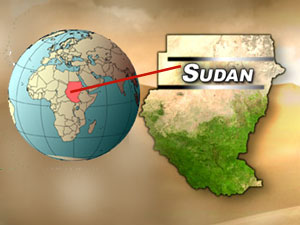
What's your opinion on this article?

|
The “Save Darfur” chorus is a ruse and scam. But, the sand of Sudan has shifted the debate and has the Obama administration leaning toward softening some of the longtime sanctions against the Sudanese government. A great hubbub is arising from “Save Darfur” people to effect its program for regime change in Sudan. They are against any “appeasement” with Sudanese officials.
Not only are sanctions in Sudan impacting millions of ordinary Sudanese in the north, south and east, but President Obama's Special Envoy to Sudan Scott Gration says they affect the ability of aid workers to ship in heavy equipment necessary to build roads and other crucial material: “At some point, we're going to have to unwind some of these sanctions so we can do the very things we need to do.” The U.S. is trying to help Sudan fully apply terms of a 2005 peace accord that ended the 22-year civil war between the government of the North and secessionists in the South. “Sudan Campaign” operatives, now a part of the “Save Darfur” coalition, were unmitigated supporters of the South.
Time is running out before the 2005 Comprehensive Peace Agreement (CPA) between the North and the South faces a crucial test with national elections in February and a subsequent referendum on self-determination for Southern Sudan. The U.S. is liable for elements of CPA accords it hasn't met. But, instead of preserving the CPA peace, it look a public marketing blitz from the Save Darfur complex to convince the White House to maintain pressure on Sudan and ignore Mr. Gration's push to engage Khartoum
Restrictions against Sudan were enacted by the Clinton administration over a decade ago. U.S. foreign aid and almost all commercial ties are severely restricted. Even floating the idea of lifting some sanctions—something the Bush administration also contemplated—is politically controversial. The latest campaign to save poor Sudanese through bombast is called “Sudan Now: Keep the Promise.” In coming months over $20 million will be spent by these groups to “keep the promise” of knocking the Sudanese. Not to help feed and care for hapless Darfurians, but pay for print and online advertisements in national publications to apply “real pressure” on that government. “We fear [Gration is] being too concessionary,” says Randy Newcomb, president of Humanity United, the foundation bankrolling the publicity campaign. Mr. Newcomb gets his money from the founders of EBay and states: “There are people in the administration we've been friendly with, but we've got to keep the pressure on them to make sure they are very aggressive.”
Based in Redwood City, Calif., Humanity United's primary donor is the Omidyar Network, funded by EBay founder Pierre and his activist wife, Pam Omidyar. The Omidyar Network says, “We invest in technology platforms that connect individuals with shared interests, encourage people to engage on critical issues, and increase access to credible information to enable more informed decision-making.” Mrs. Omidyar may want to engage in some informed decision-making herself and re-consider underwriting Mr. Newcomb to “be aggressive” against the Special Envoy to Sudan's peacemaking efforts.
As Congress returns and Mr. Newcomb ramps up his efforts to derail Mr. Gration's efforts for peace for Sudan and Darfur, it's important the Omidyar Network make sure that it is “investing in efforts for positive change.” If it's for peace, the Omidyar Network will need to change its focus from fantasy to reality. Only by radical adjustments of its policies can the U.S. resume influence on Sudan. Pam Omidyar is encouraged to support Sudan's peace and prosperity and put forth efforts toward Gration's vision: bring rebels to the table to establish peace, turn the Sudanese economy around, and engage in works that deliver services to the people.
(This column was distributed by Black Press International—www.BlackPressInternational.com)
FinalCall.com Guest Columnist